Of the
factors that shaped today's Middle East - Islam, the Ottoman Empire, European
colonialism, the foundation of the state of Israel, US power and oil- history
has closed the book only on the Ottoman and European empires. Even so, their
legacies remain important. The other four factors persist, joined by two more
to shape current political dilemmas and opportunities - demography and the
nature of governance.

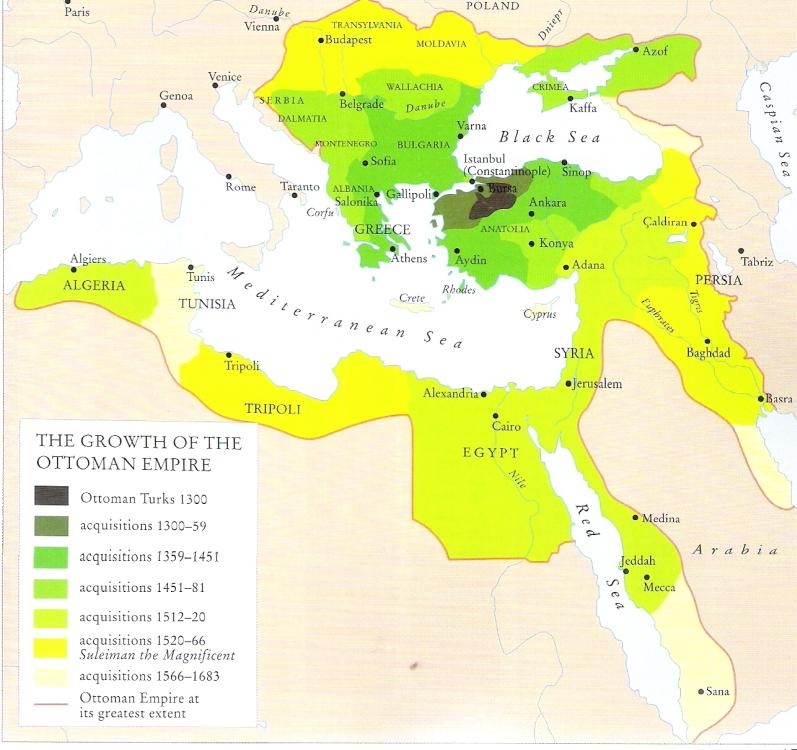

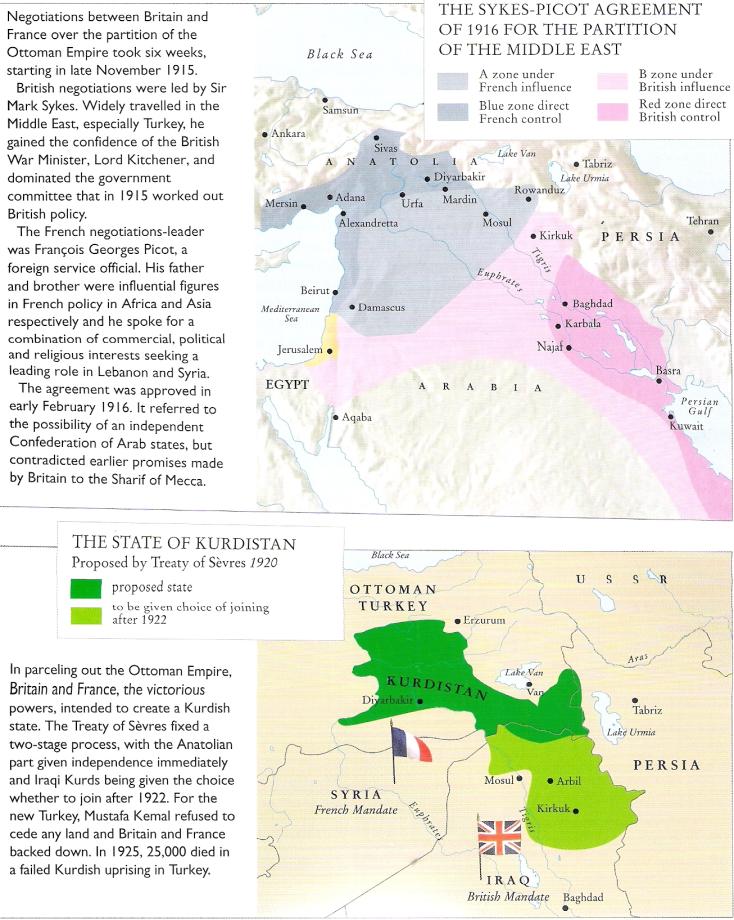
|
|
As the
Arab world sought independence from European colonial rule, some Arab
thinkers and politicians envisaged a larger goal than independent statehood;
a vision of pan-Arab unity. For a century and a half from the time of
Napoleon Bonaparte's defeat of the Mamluks in Egypt in 1798, the Middle East
was confronted, challenged and, by many measures, bested by Europe. One
answer to the overriding question of how the Arab world should respond to the
challenge of western European power came in the form of anti-colonialism. But
to be against colonial domination could not, neither in
logic nor in political reality, be a matter only of opposing the existing
dominant foreign power. It had to be also a statement - a political programme, in fact - of the better future that would be
obtained through overthrowing colonial power. Despite some nostalgia for a
different empire, by and large the anti-colonial movements did not seek a
return to Ottoman rule; instead, they sought independence - a new state. As
movements for independence got going however, the
pre-existing unity of the region began to influence political ideas and programmes. Though there are many differences among Arabs
in different parts of the region - inevitably in such large and relatively
thinly populated areas there is also much that is shared in terms of language
and culture, not least religion, history and experience. It is easy to
exaggerate how much is shared; not all Arabs are Muslims, for example, and
there are several different forms of Arabic, some of which are barely
mutually comprehensible. There are also sharp rivalries and different
interests among the Arab elites and, as everywhere, deep cleavages of class
and sharp distinctions between urban and rural dwellers. Nonetheless, Arabs
in different parts of the Middle East have mutual connections that are much
stronger and more real than those to be found among, for example, Europeans
in different parts of Europe. Moreover, advocates of Arab unity argued that,
on top of everything else they shared, the Arab world also had a common enemy
- the West. |
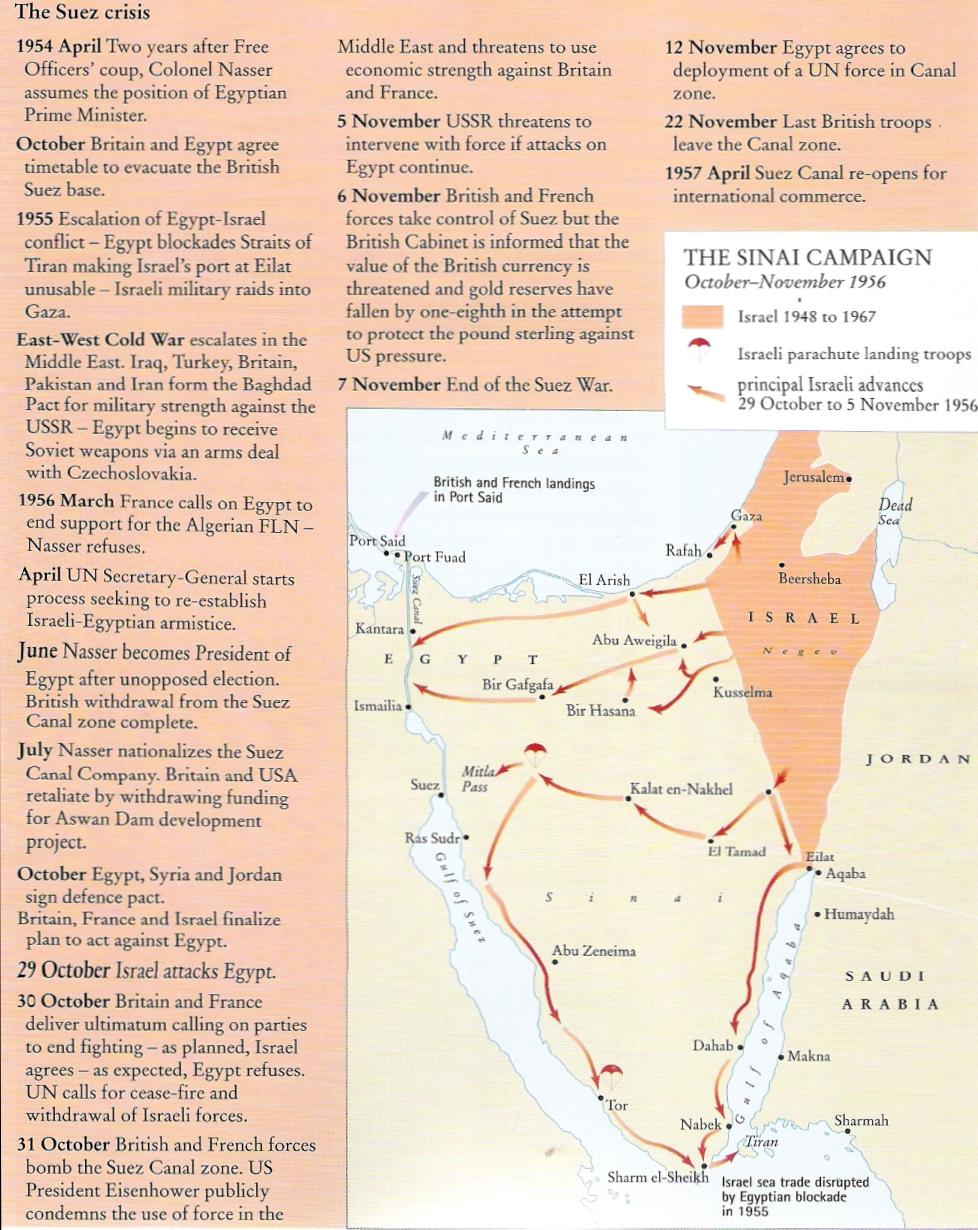
To the
citizens of the new state, the declaration of Israel's independence on 14 May
1948 marked the realization of a dream and the creation of a place of survival
and belonging after genocide. To Palestinians, the event is simply known as al-nakba - the catastrophe. The term Zionism was coined by a
Jewish writer a few years after the beginning, in 1882, of migration to
historic Palestine by Jews with the goal not only of escaping anti-Jewish
prejudice, discrimination and, at worst, pogroms, but also of ultimately
establishing a homeland. Despite the political intention, the early migrations
seemed innocuous and the numbers insignificant. Different population estimates
show between 10,000 and 24,000 Jews living in the area later called Palestine
in about 1880. Over the next three decades, perhaps as many as 1,000 Jews
arrived each year. By the end of World War I, some estimates put the Jewish
population as numbering about 56,000. The meaning of this migration and its
possible consequences only started to clarify during World War I as the Ottoman
Empire went from decline to break-up. As plans were
formulated to re-make the Middle East, and with the declaration in 1917 by
British Foreign Secretary Arthur Balfour supporting 'the establishment in
Palestine of a national home for the Jewish people,' Zionism became both more
significant and realistic. Though the Zionist Organization's 1919 proposal for
a Jewish homeland stretching well to the east of the Jordan river was flatly
rejected by the great powers, the British government permitted continuing
Jewish immigration into Palestine throughout the inter-war years. The British
authorities did, however, make a sharp division between the areas to the west
and to the east of the river, and in 1922 established Transjordan as a separate
entity into which they refused to permit further Jewish immigration.
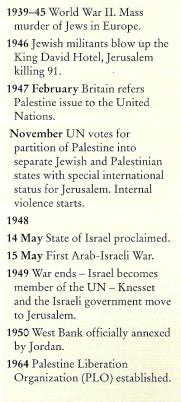
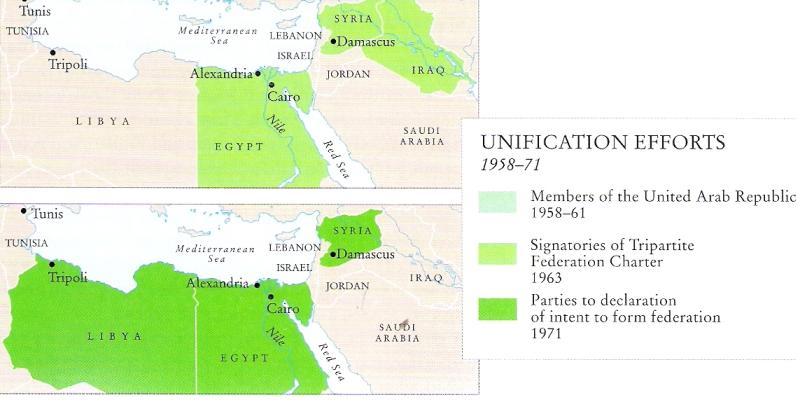
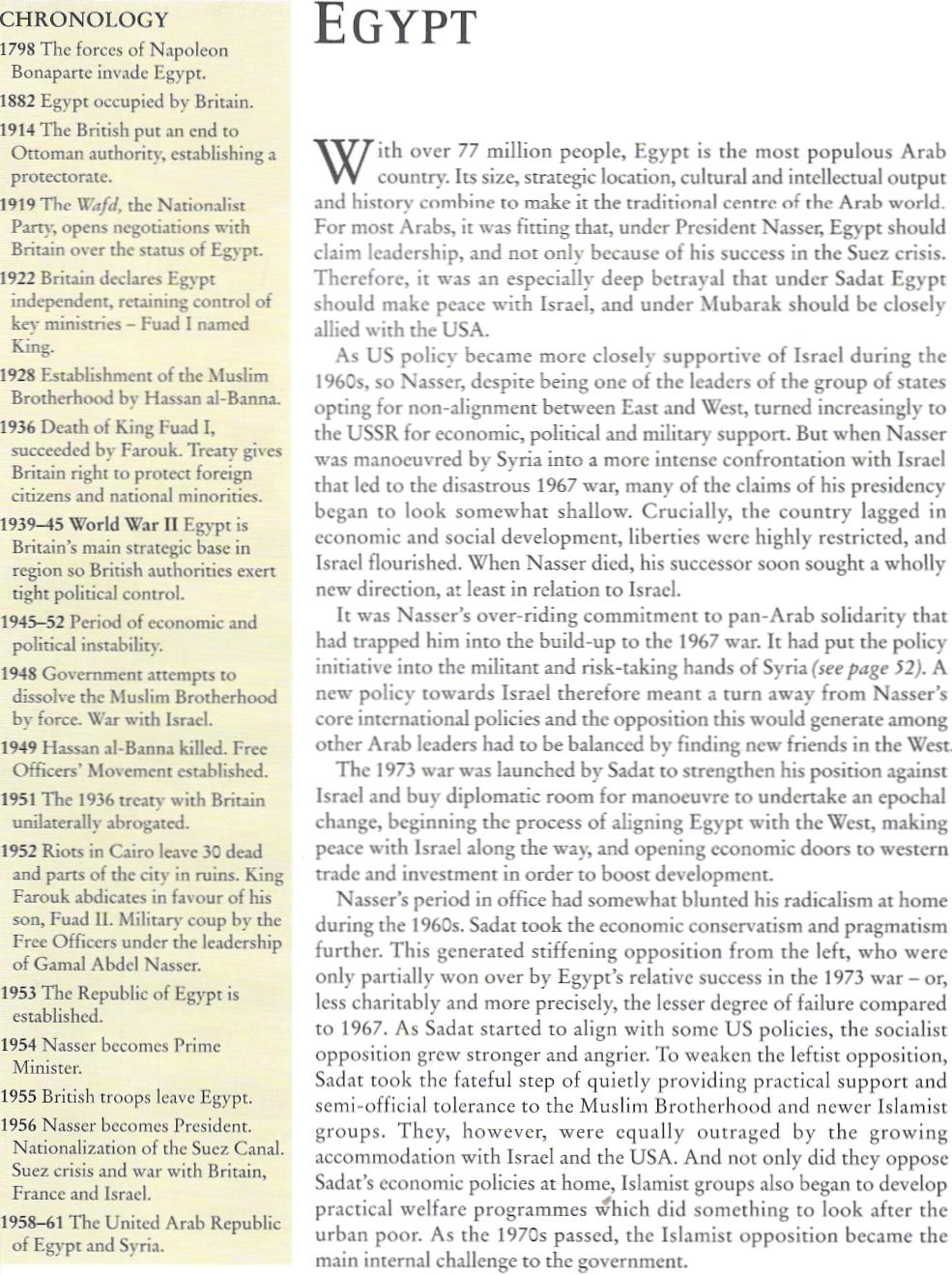
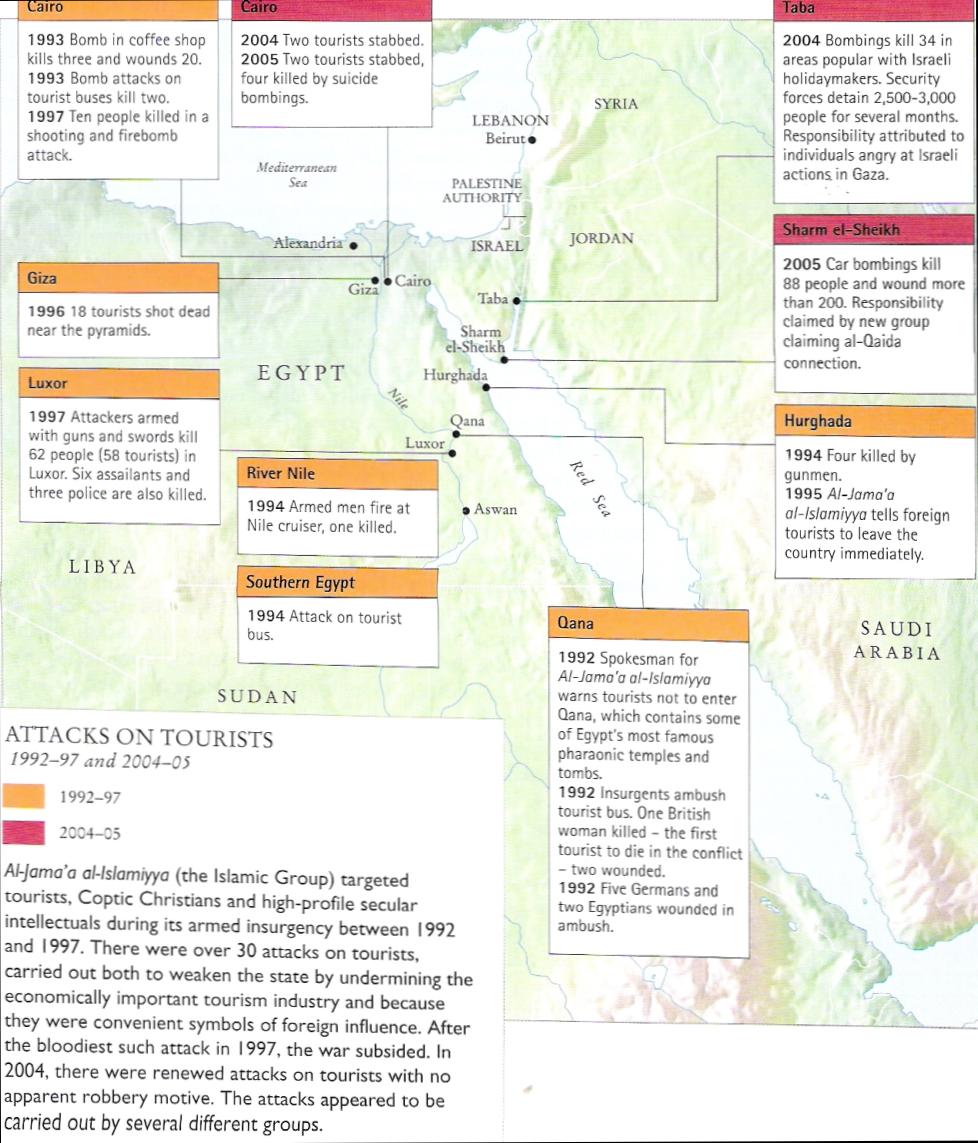
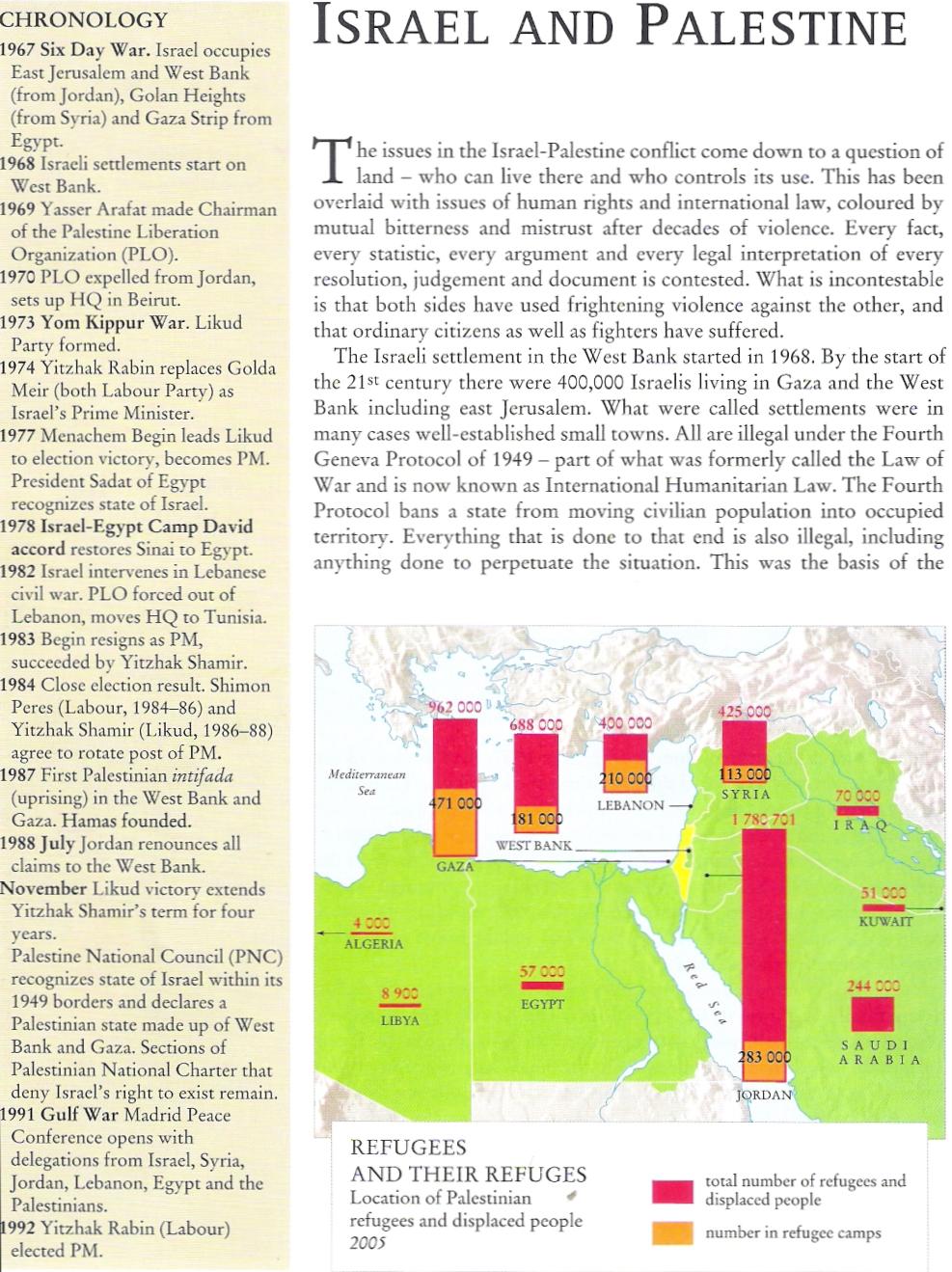
International
Court of Justice ruling in 2004 that the wall being built as a security barrier
between Israel and the West Bank is illegal, because parts of its route link
settlements to the main territory of Israel. The IslamicResistance
Movement, Hamas, had not recognized Israel as a legal state by the time it
formed the government of the Palestine Authority (P A) in 2006.
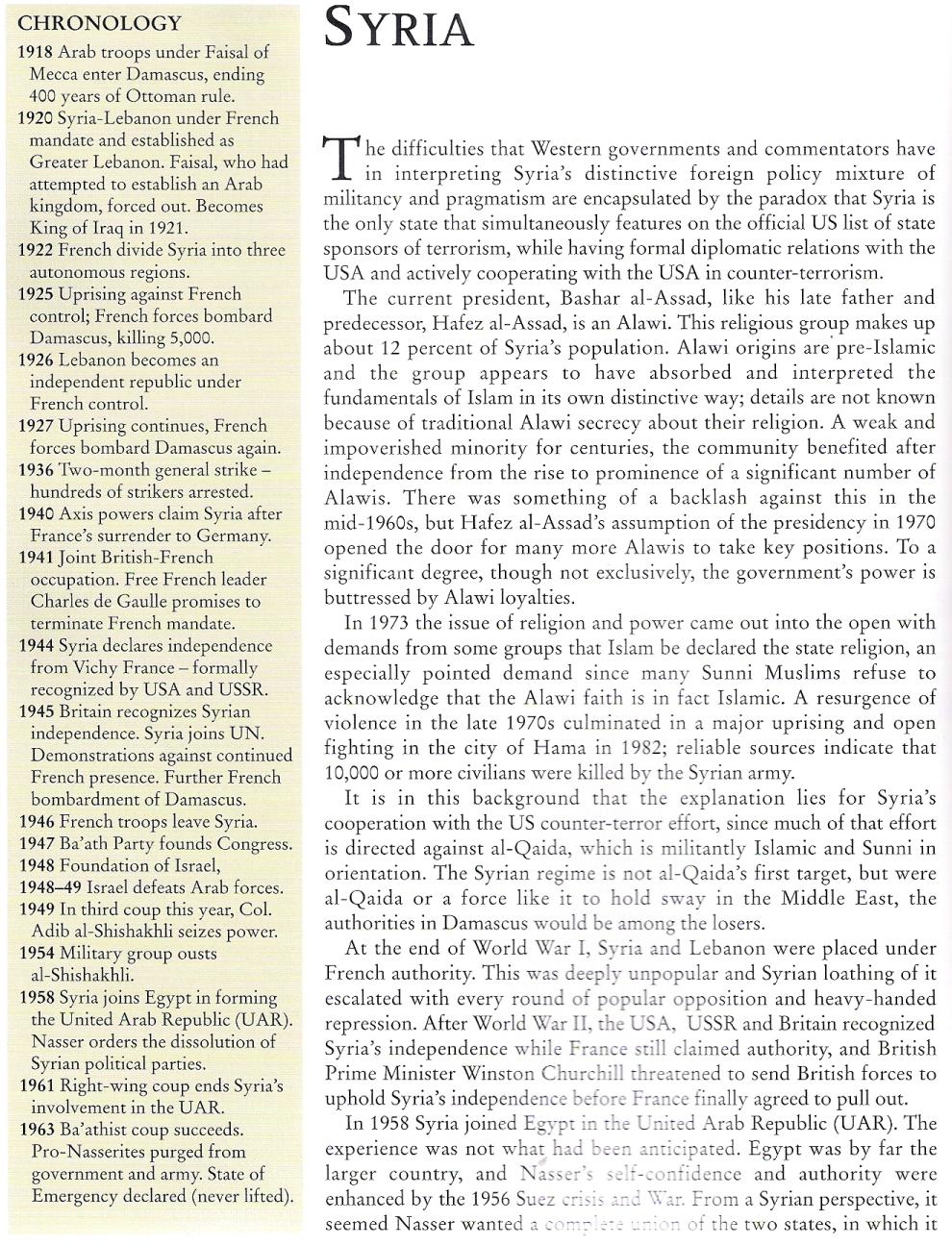
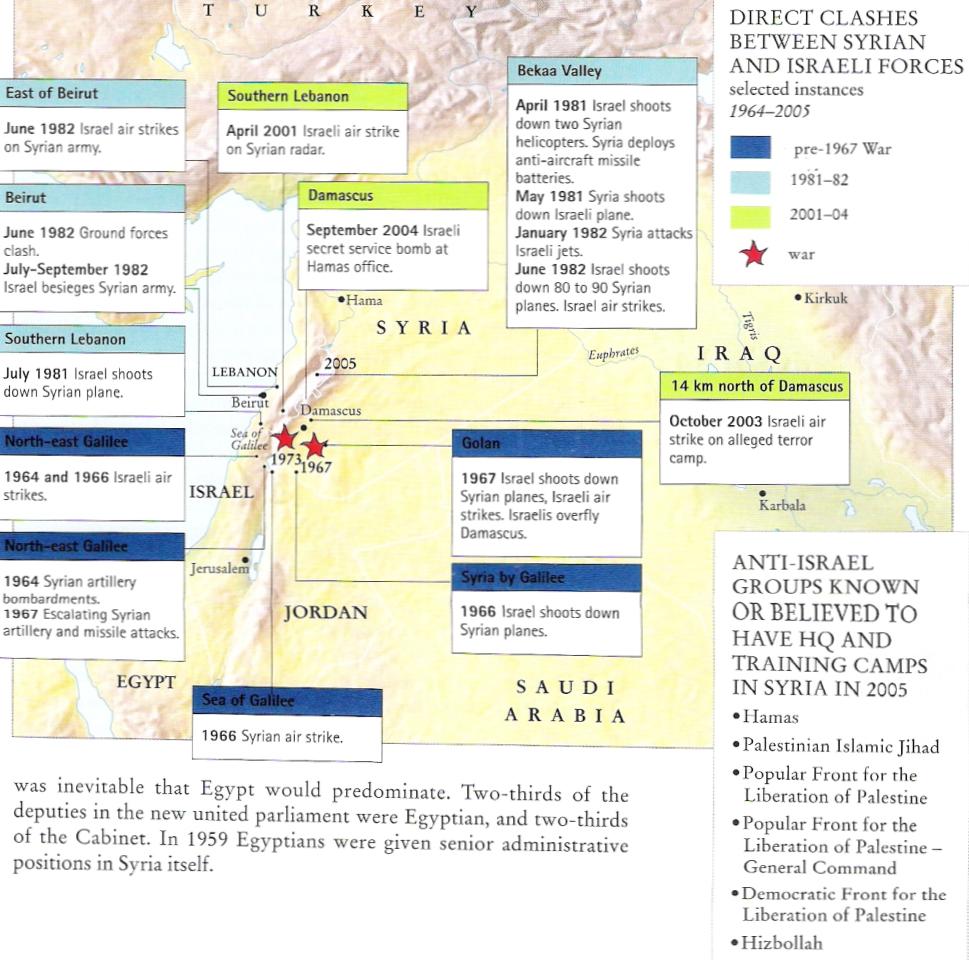
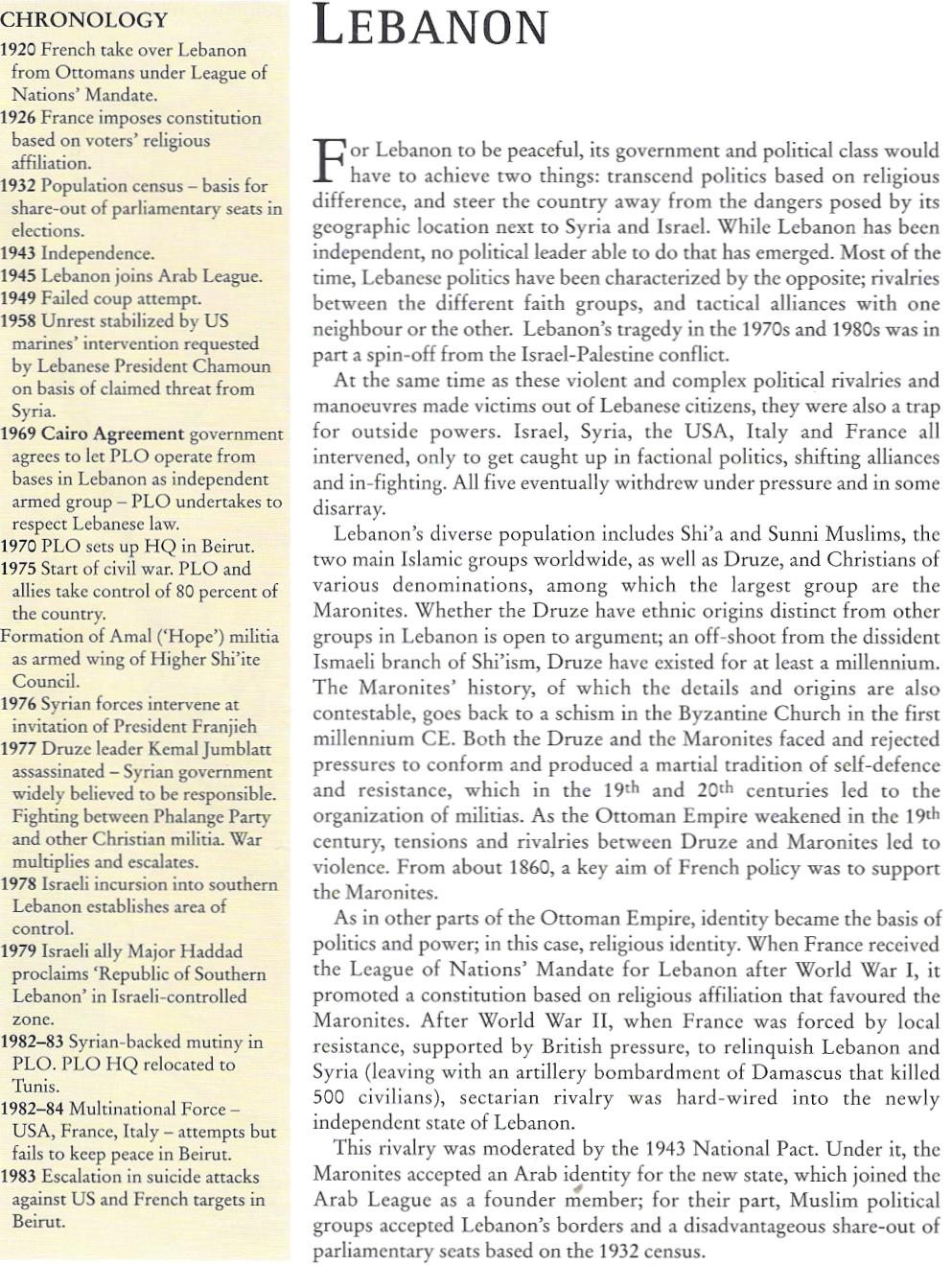
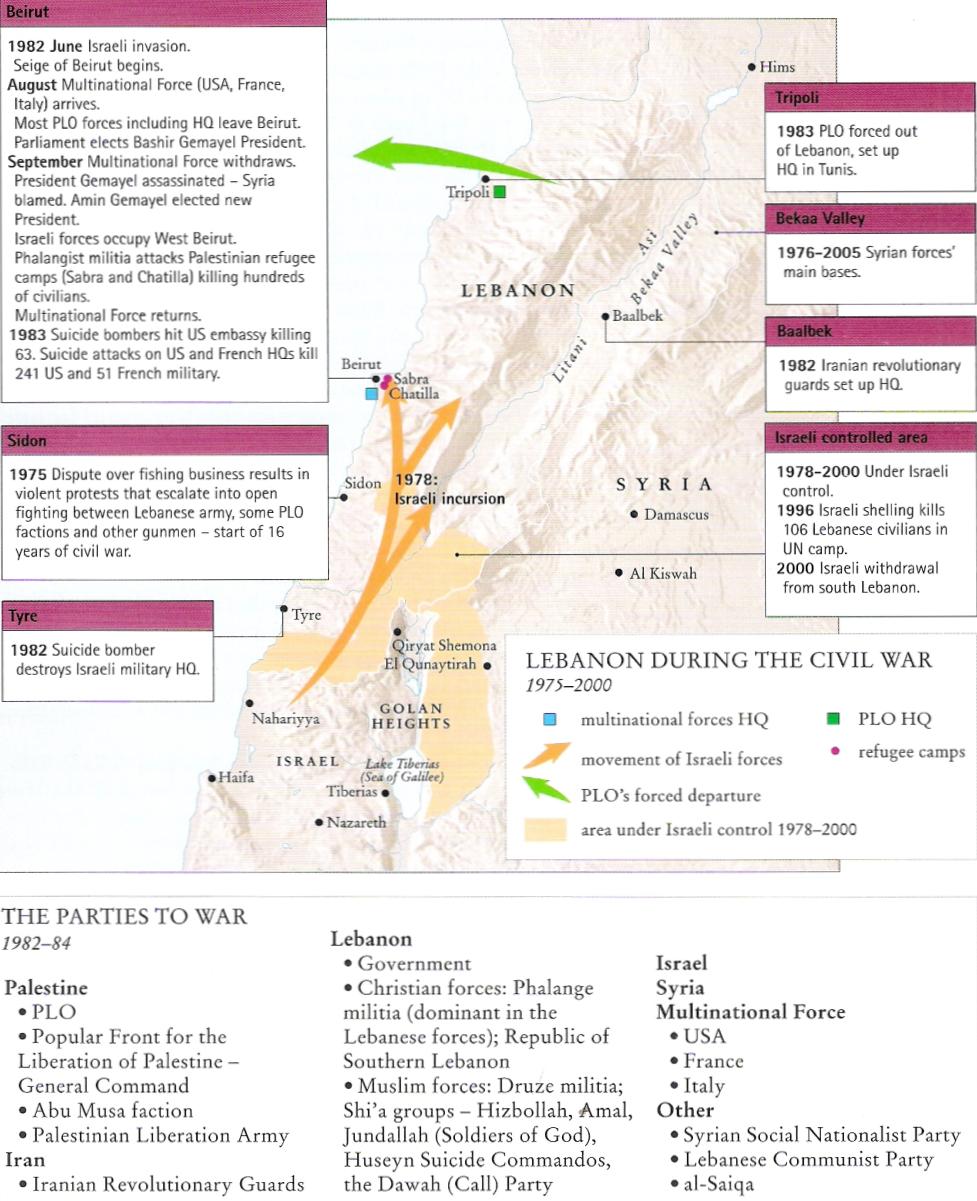
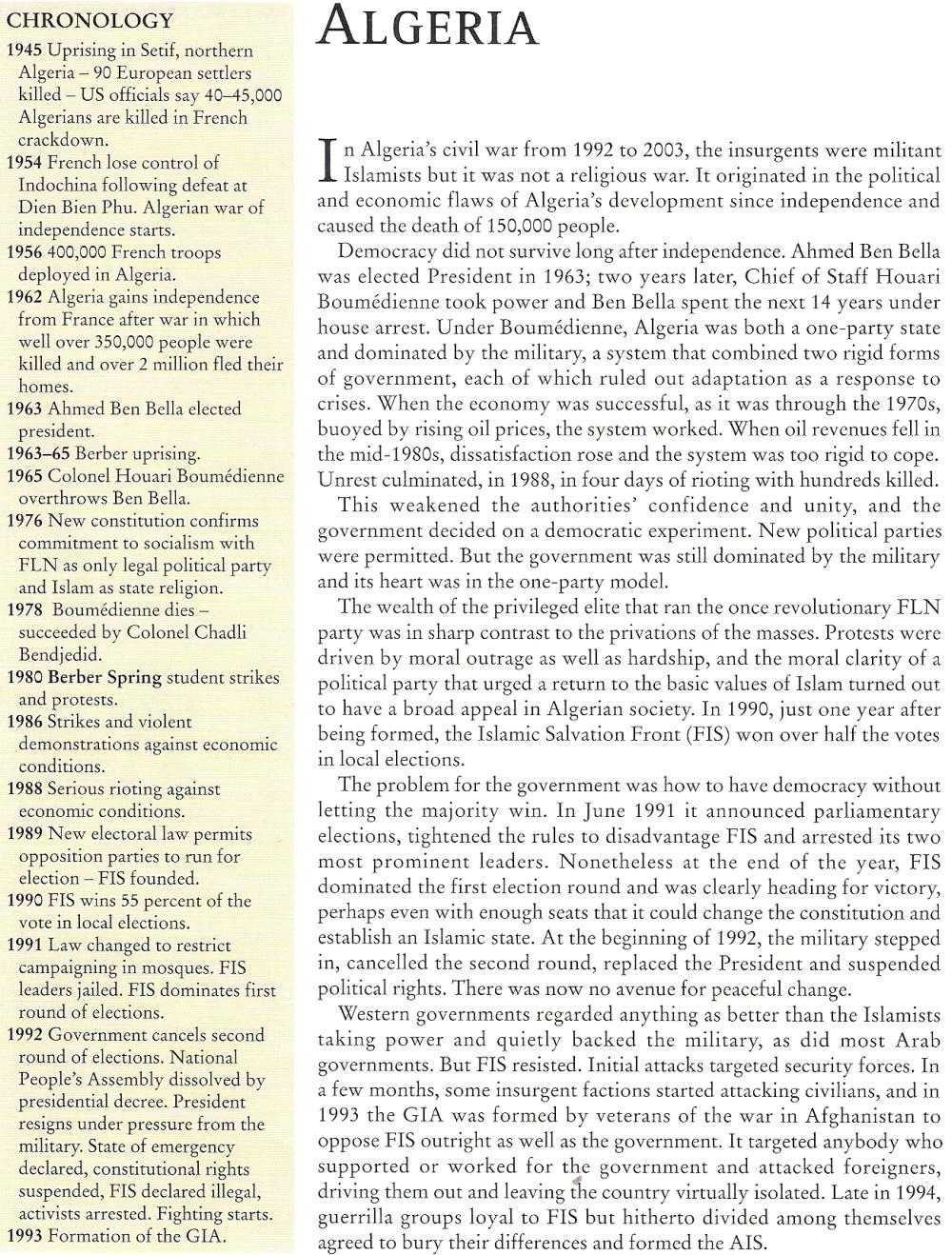
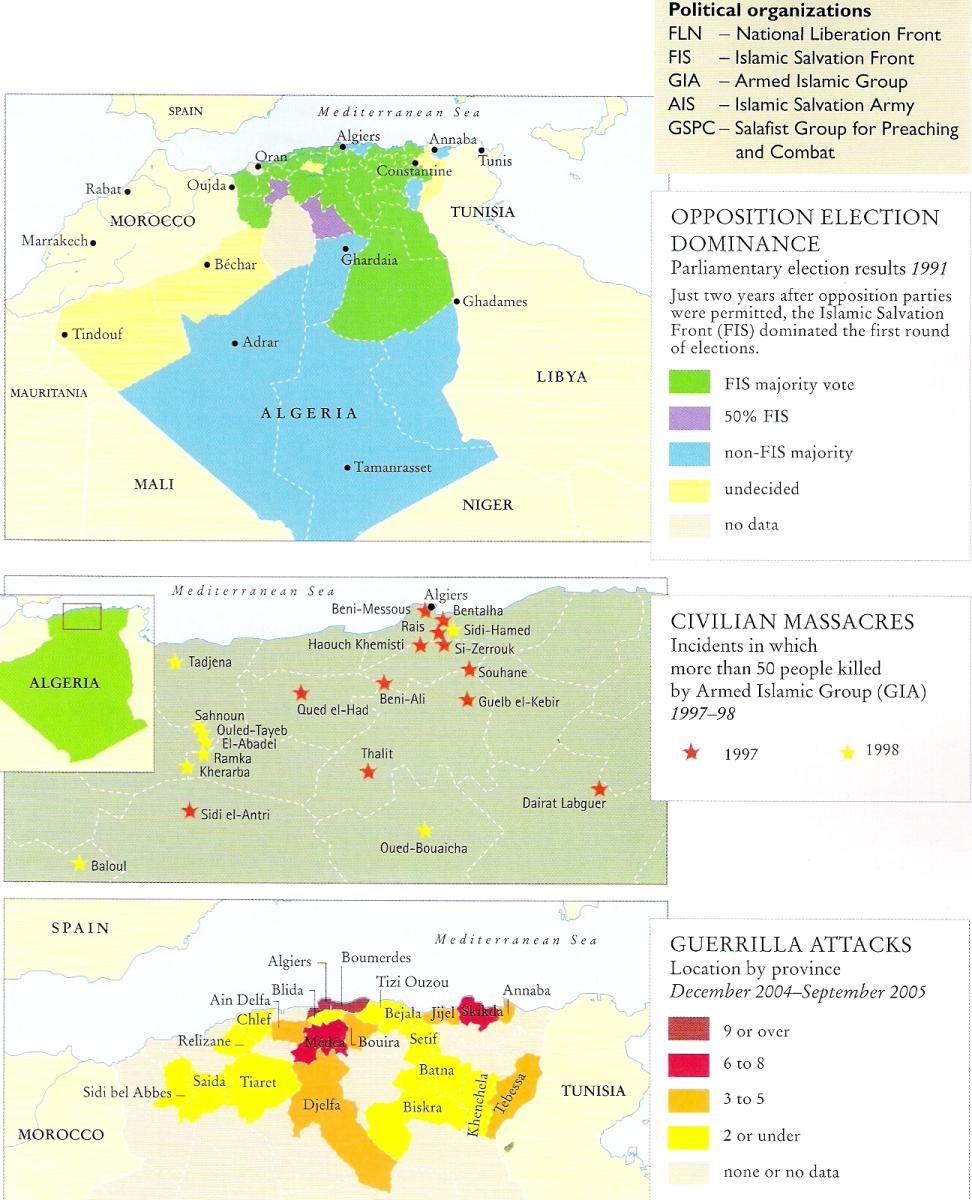
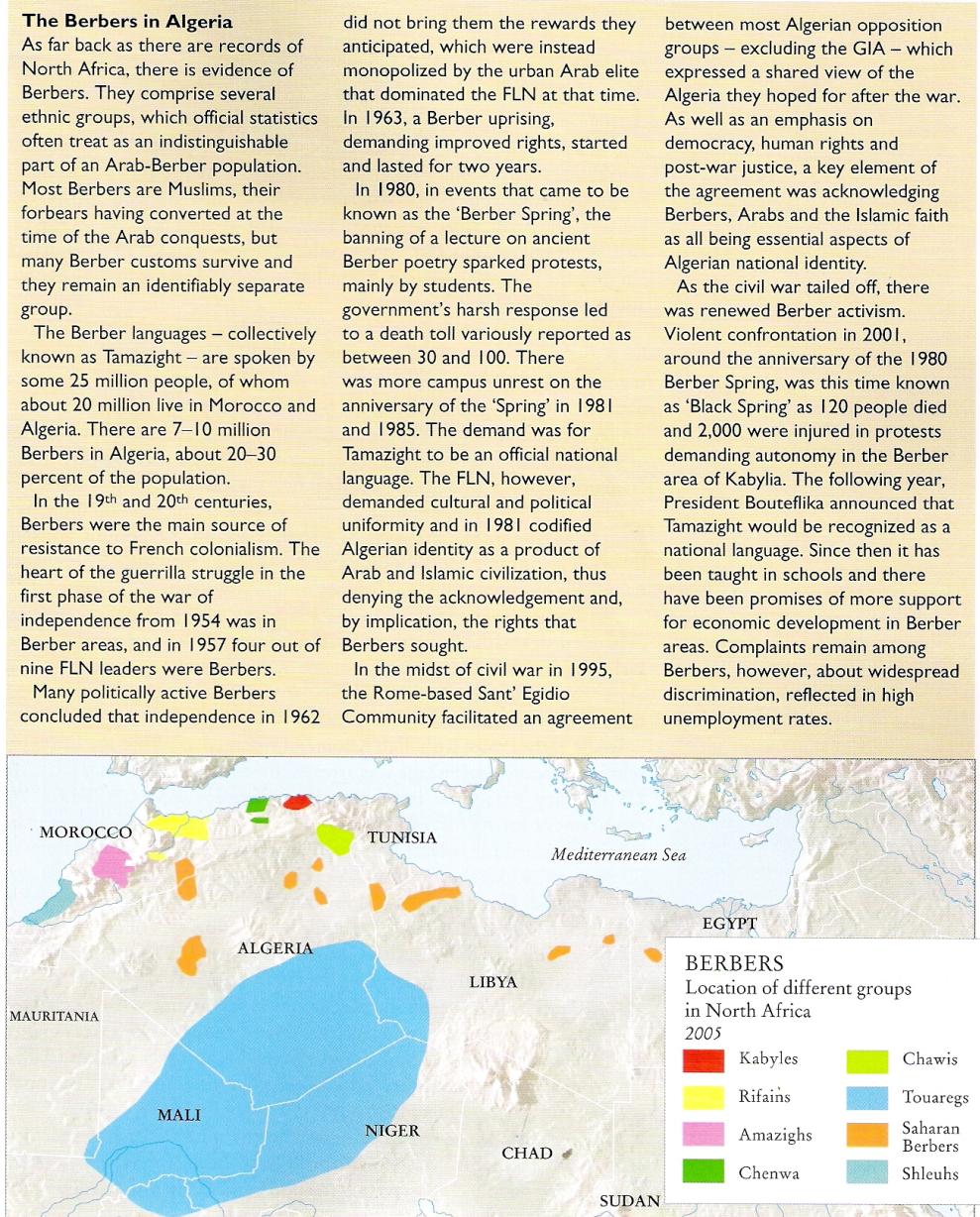
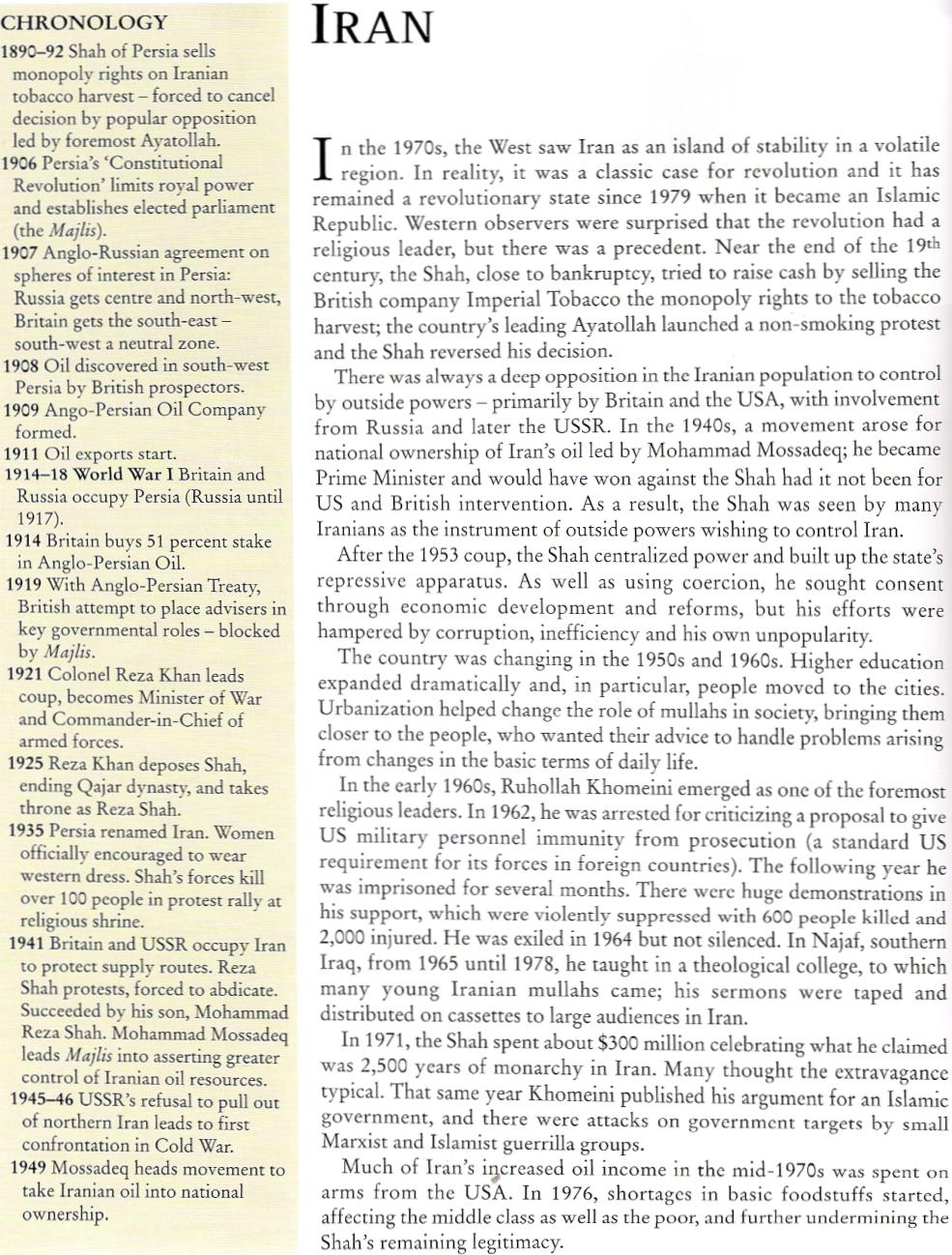
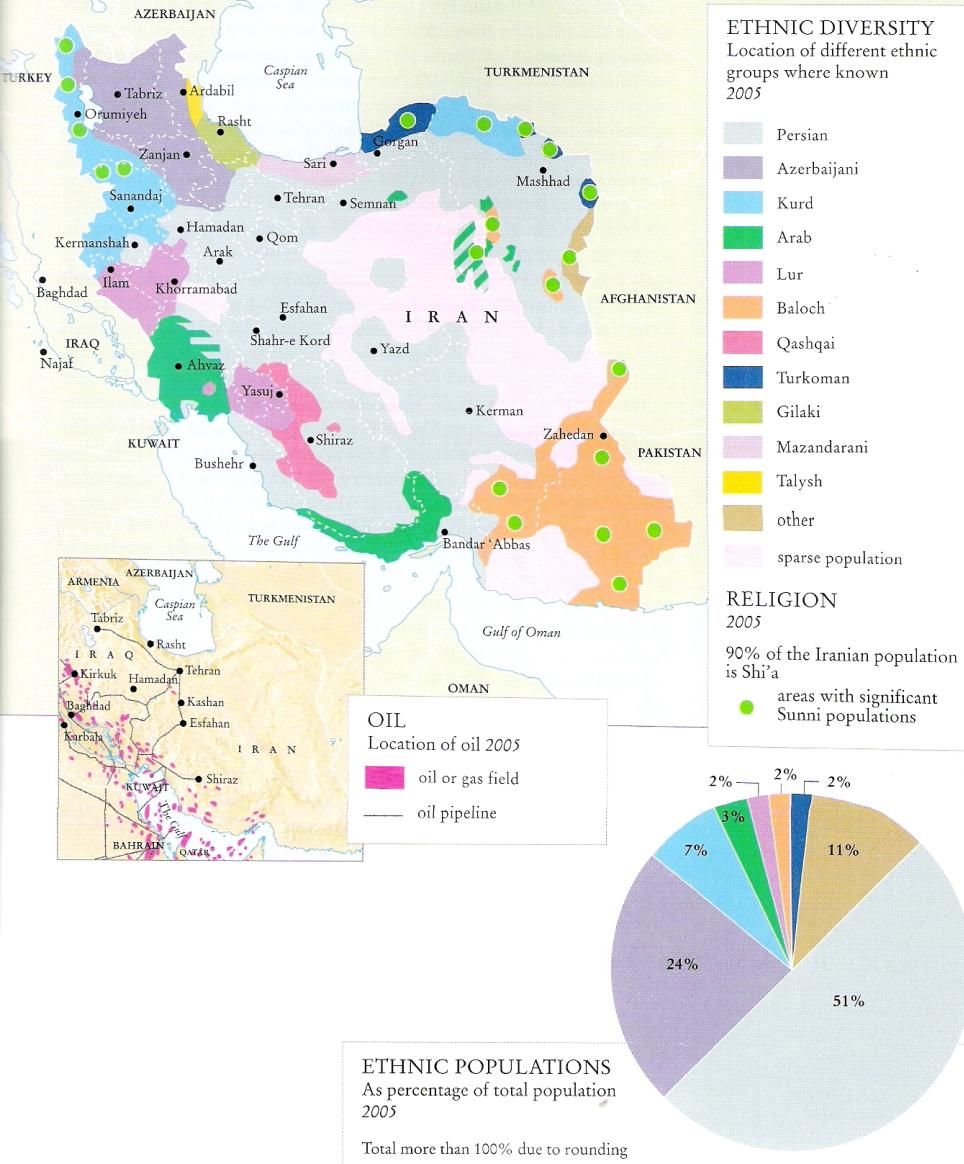
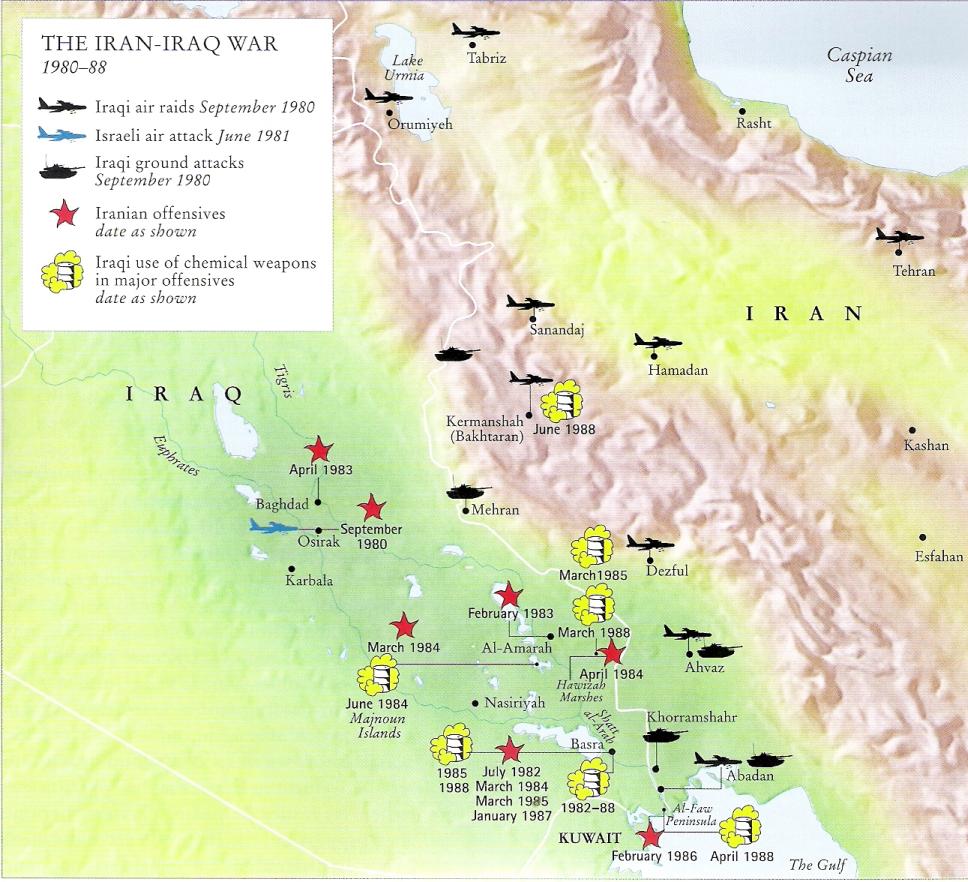
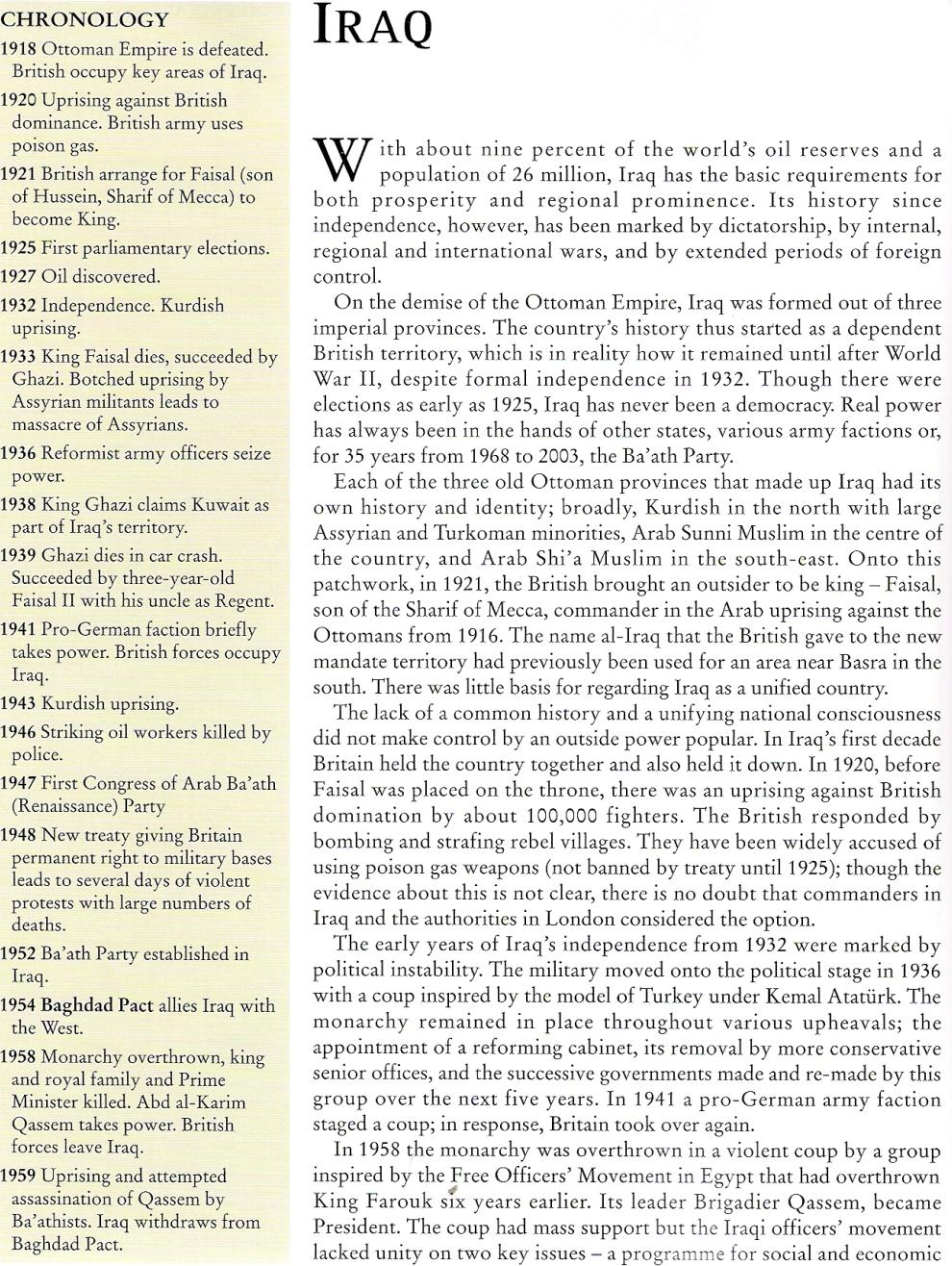
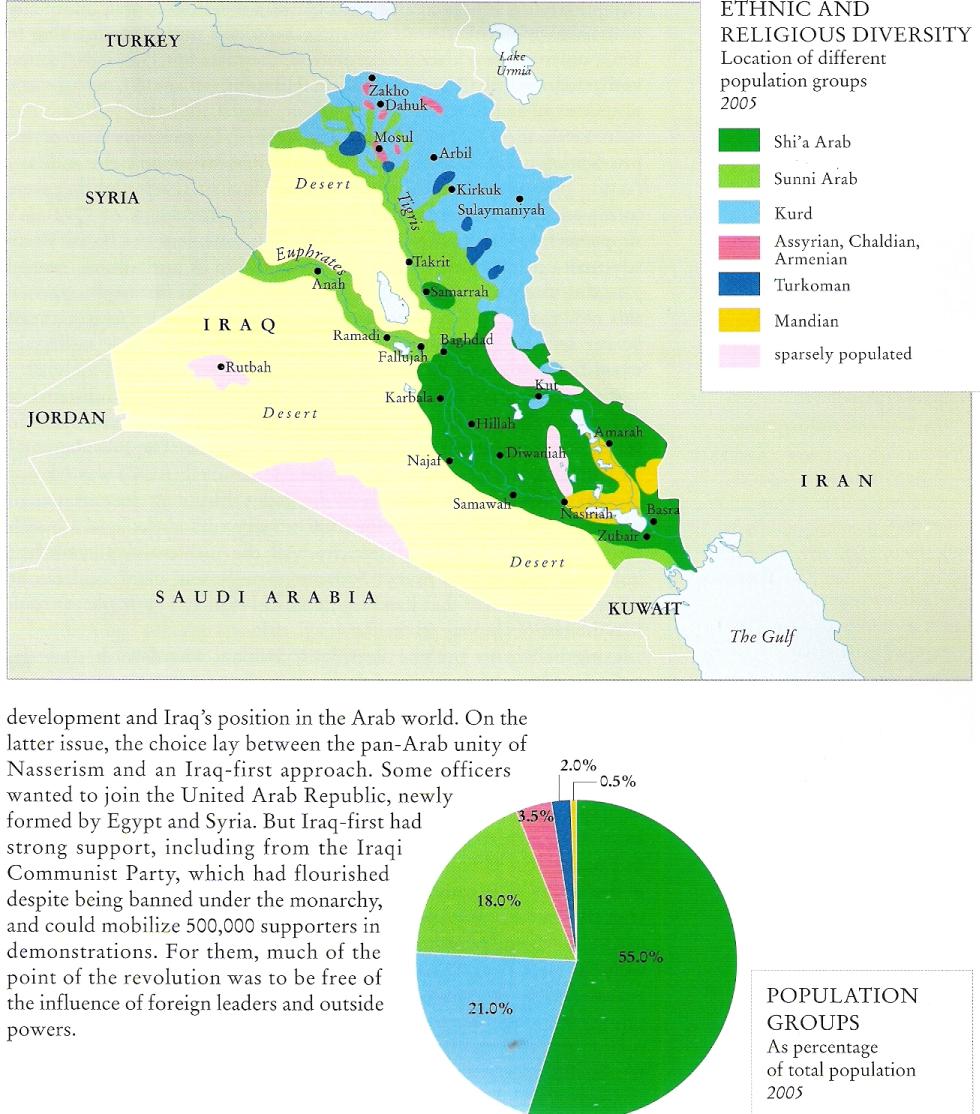
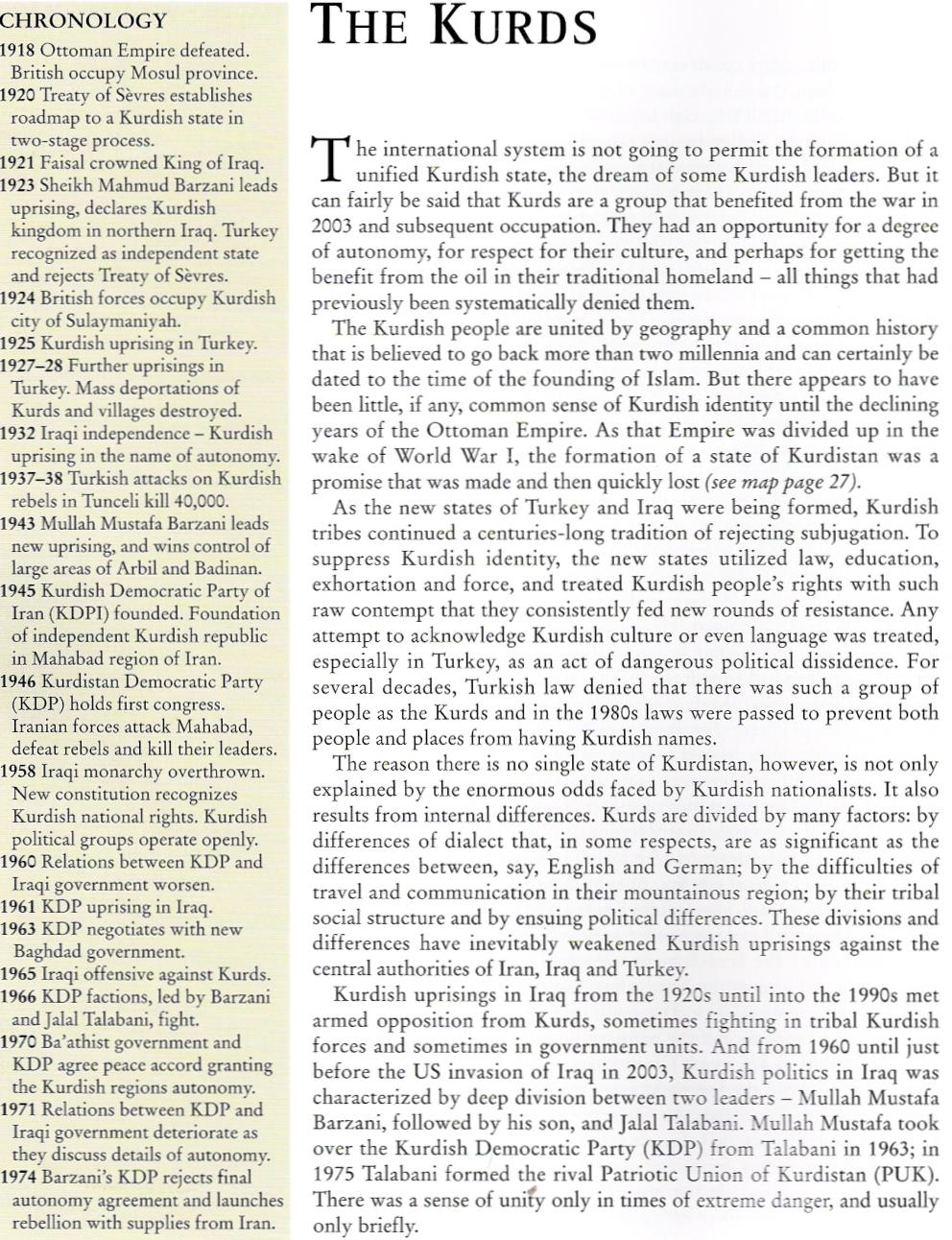
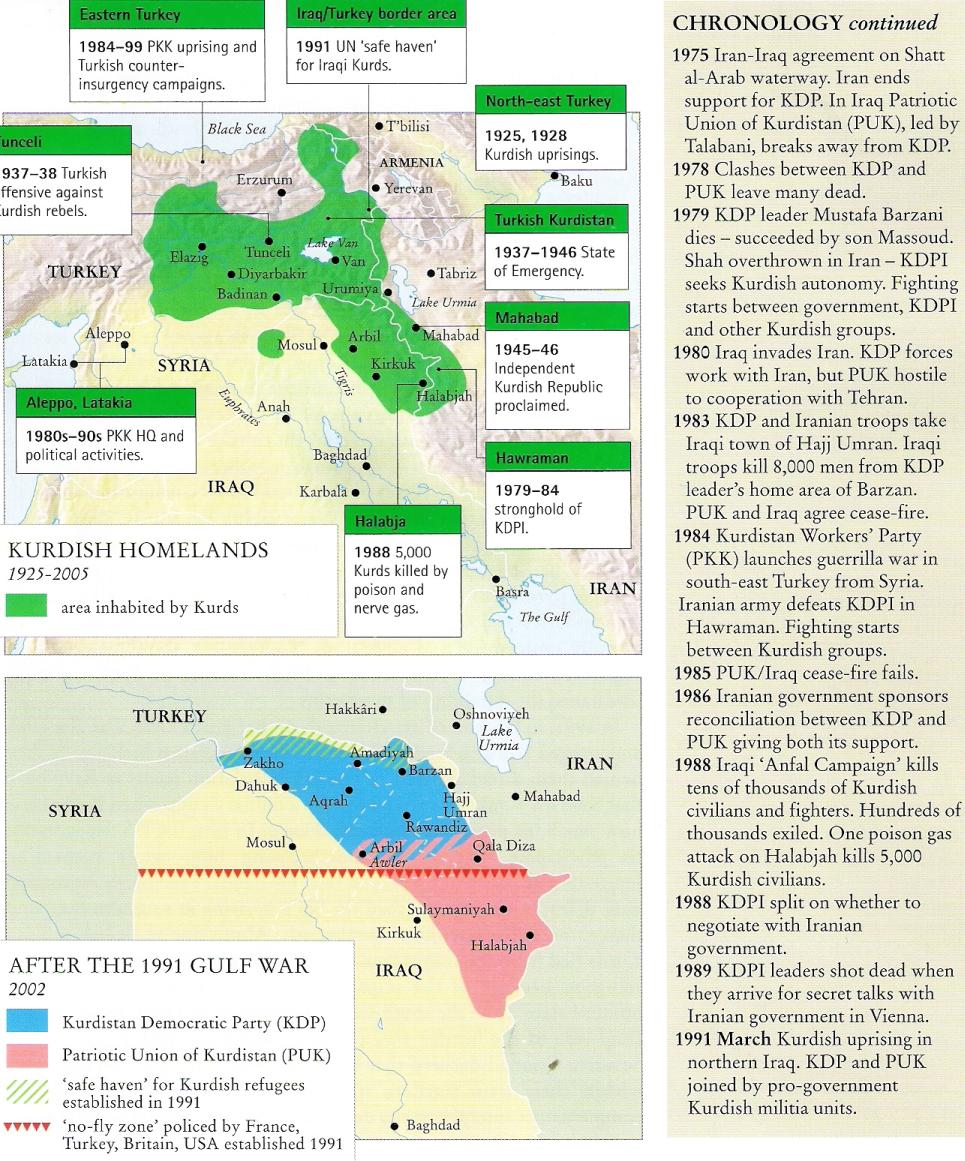
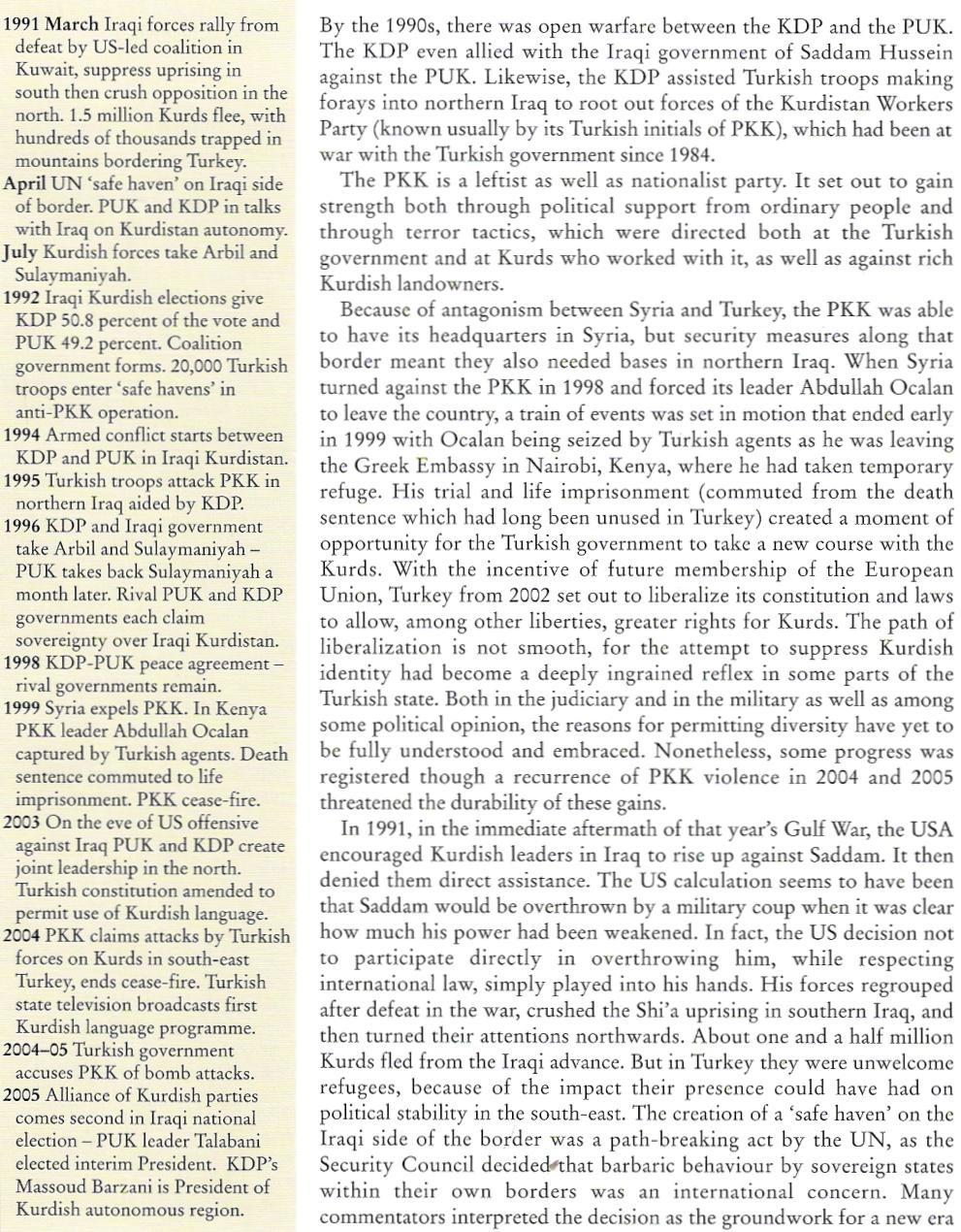
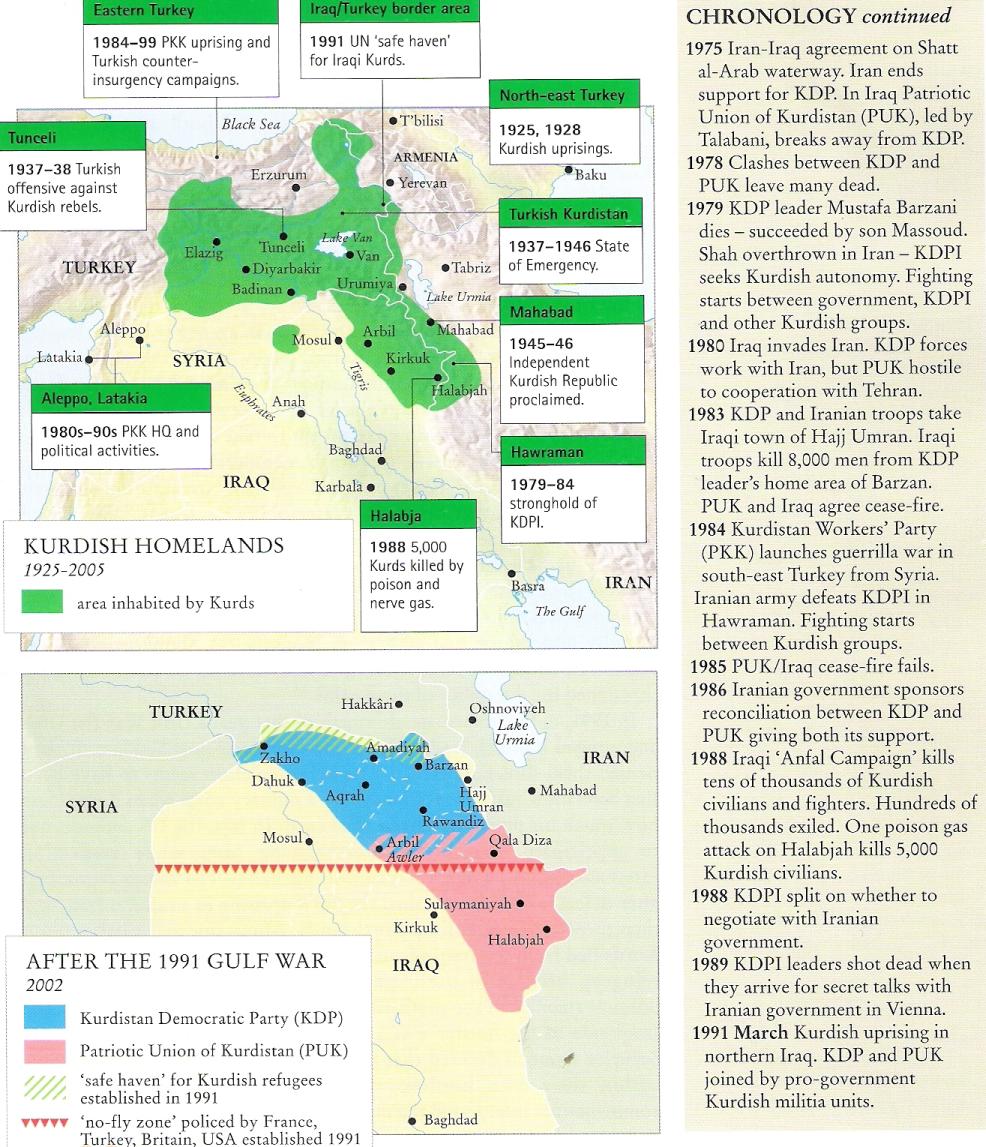
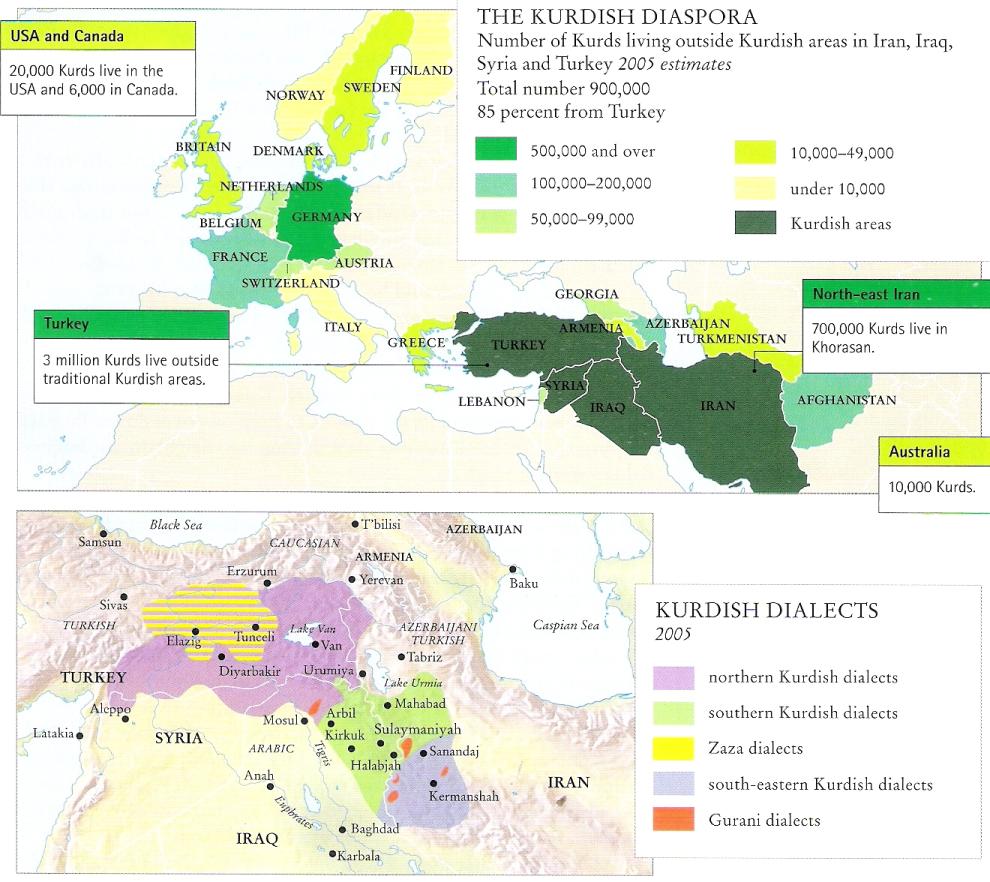
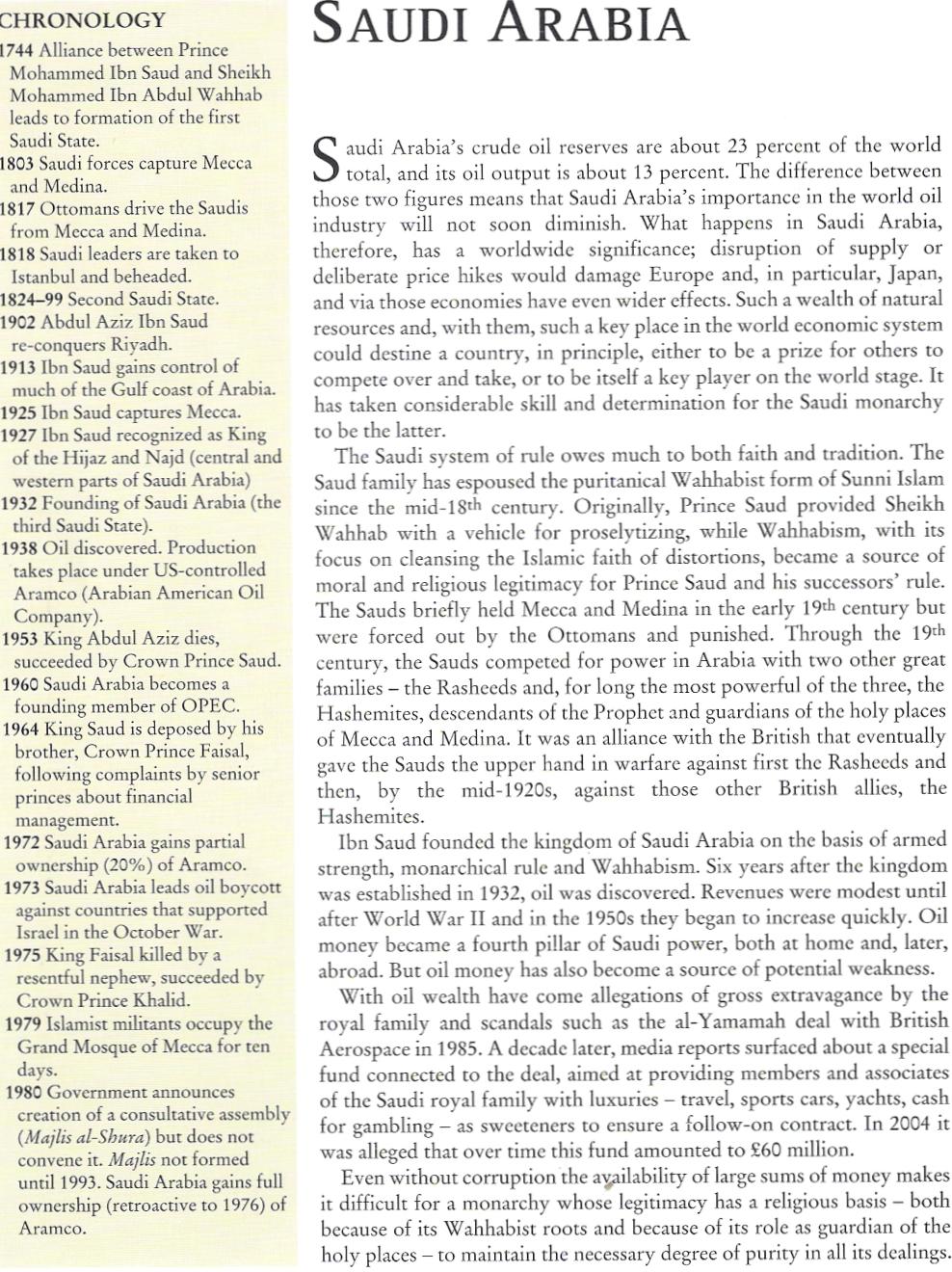
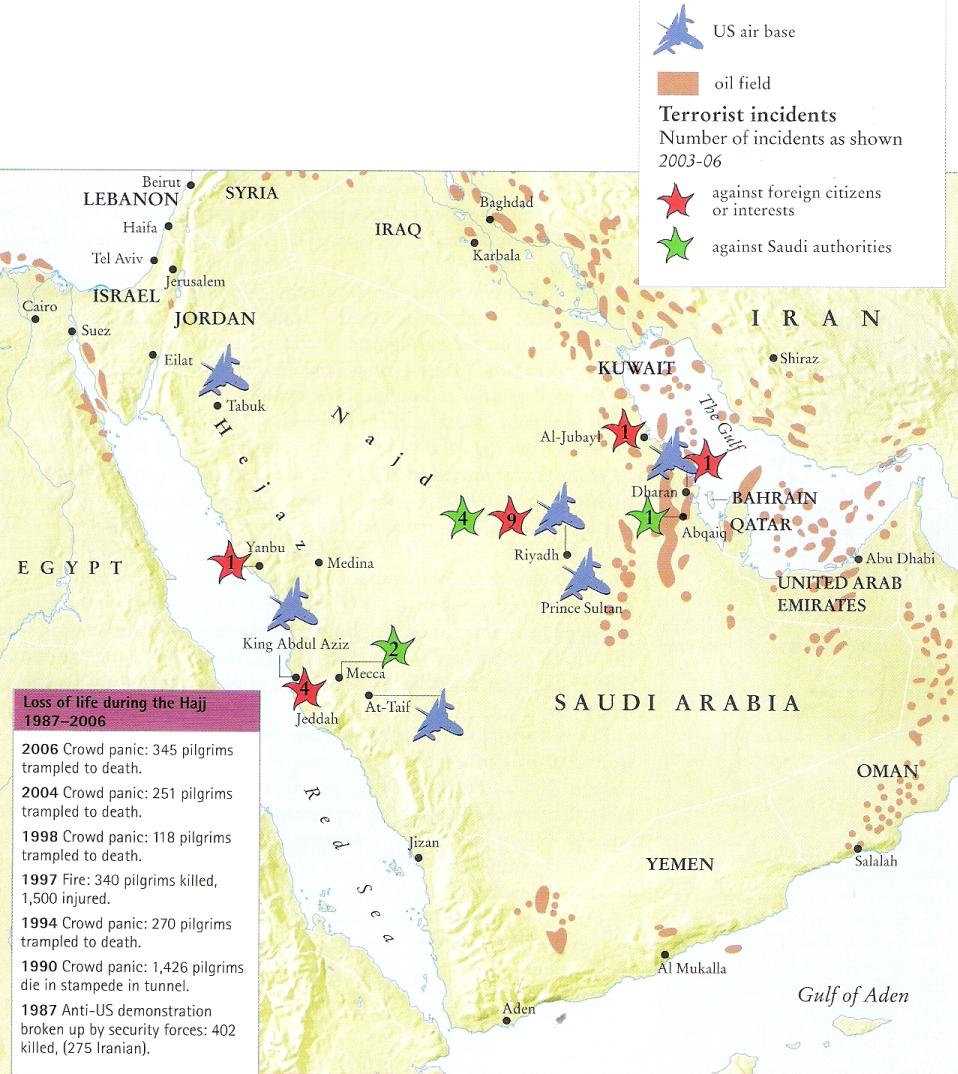
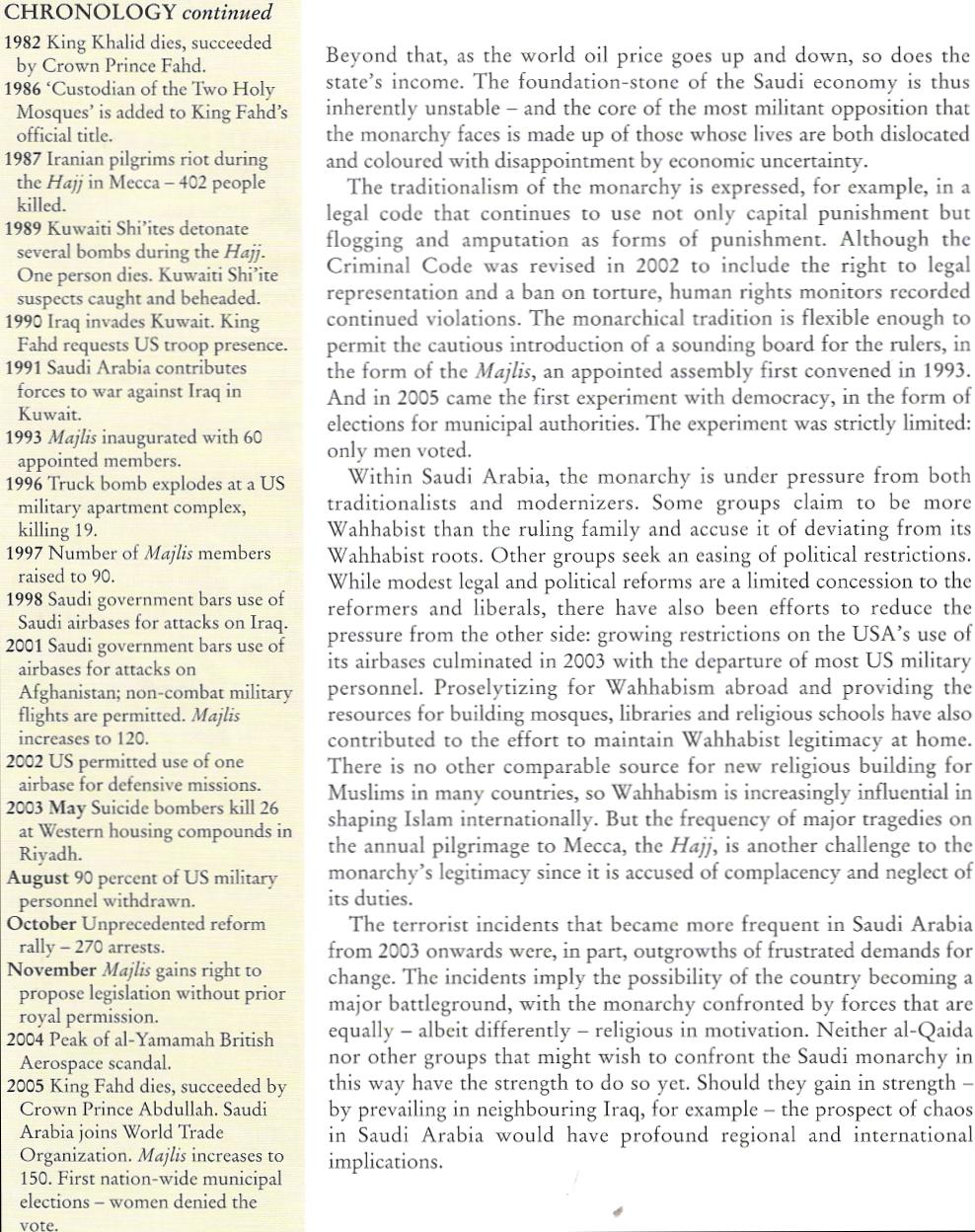
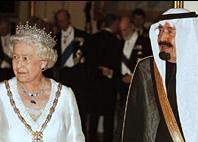
Oct. 30,
2007: Saudi Arabia's King Abdullah arrives for a controversial visit in the UK
today while warning, the fight against Muslim extremism (‘terrorism’ he said)
would take 20-30 years. Of couse topic of
discussion at Downingstreet will be Iran. The remark about a 20-30 year
timeframe, in our opinion confirms the fact that the threat of an Islamist
takeover in the Middle East is unrealistic on a long term basis. Because the
Islamists' vision of state and society ultimatly is
incompatible with today's realities, making it too radical an alternative.
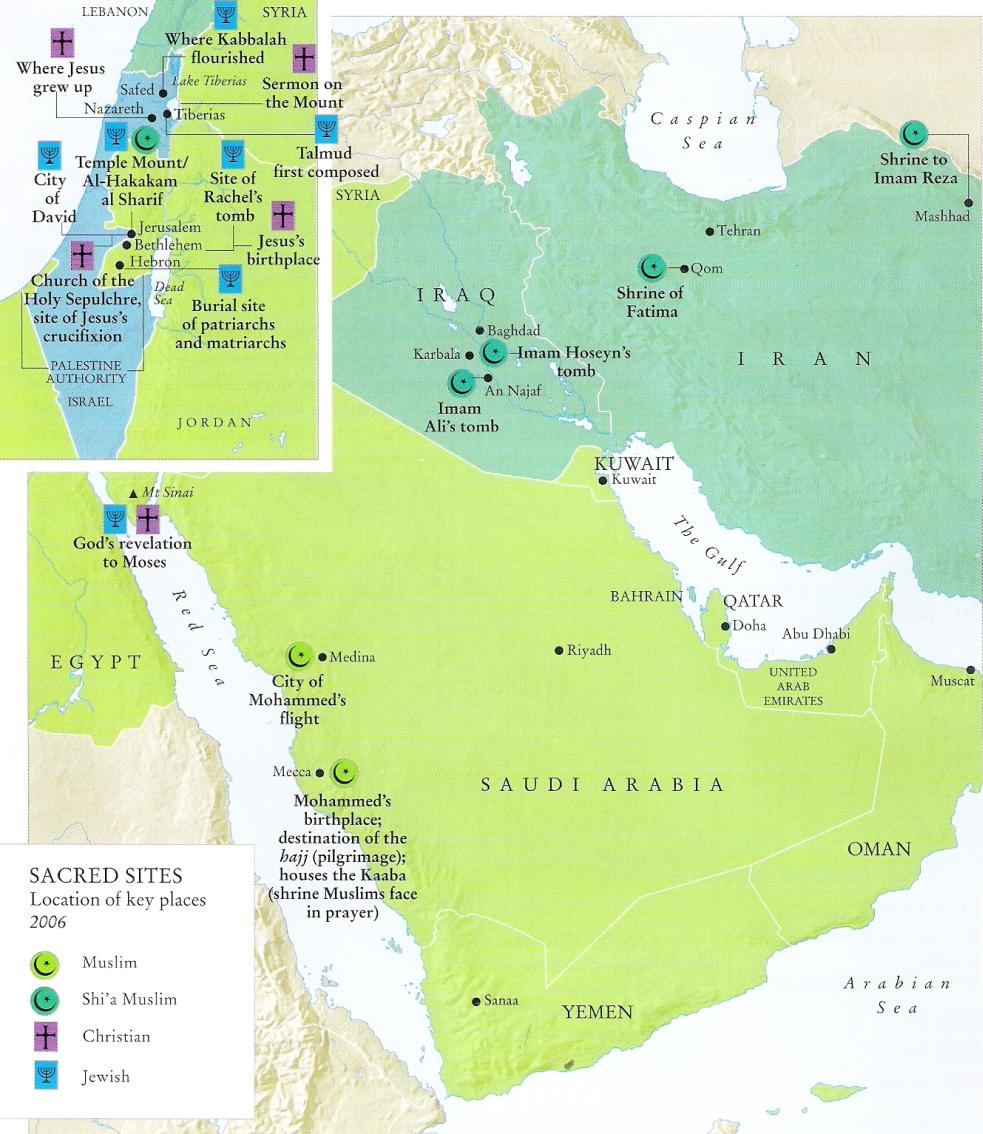
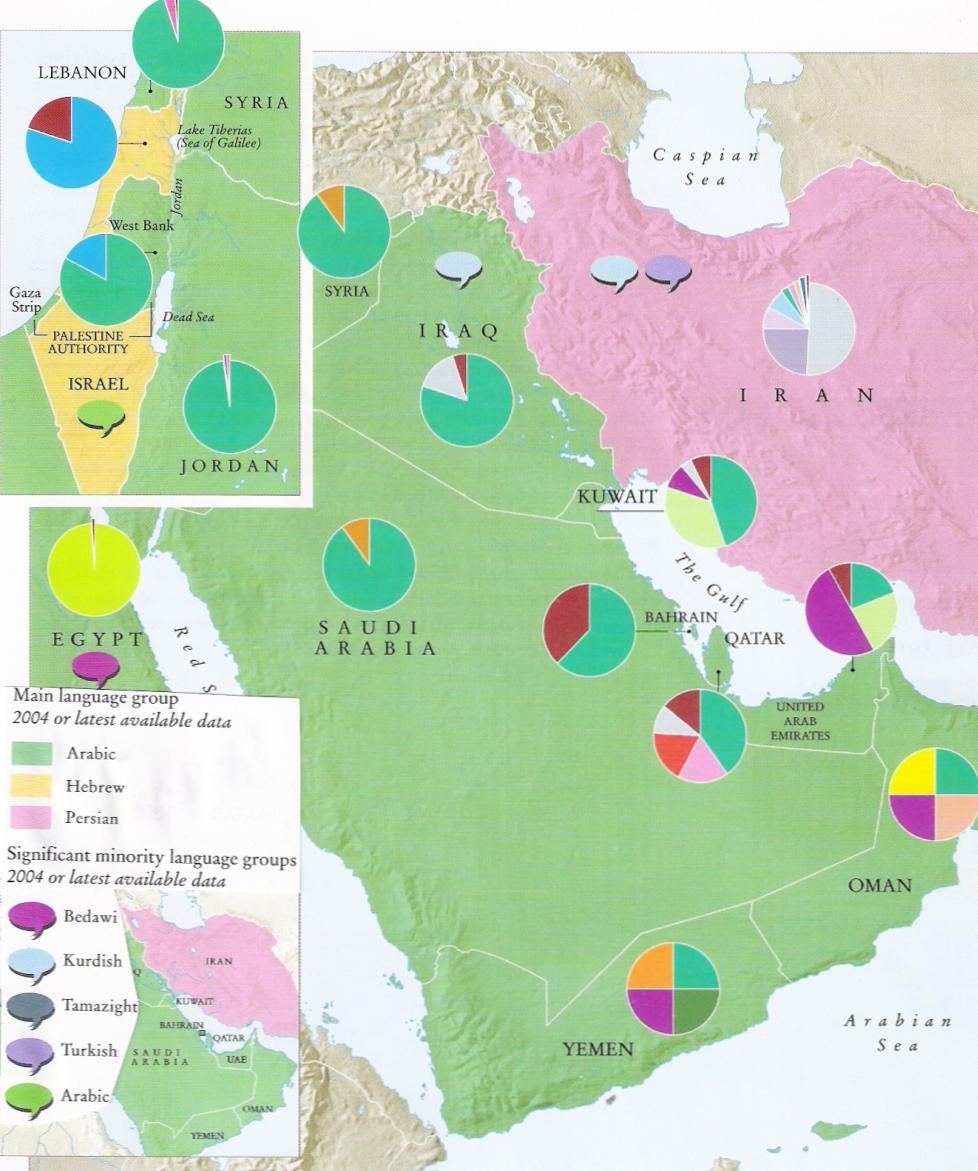
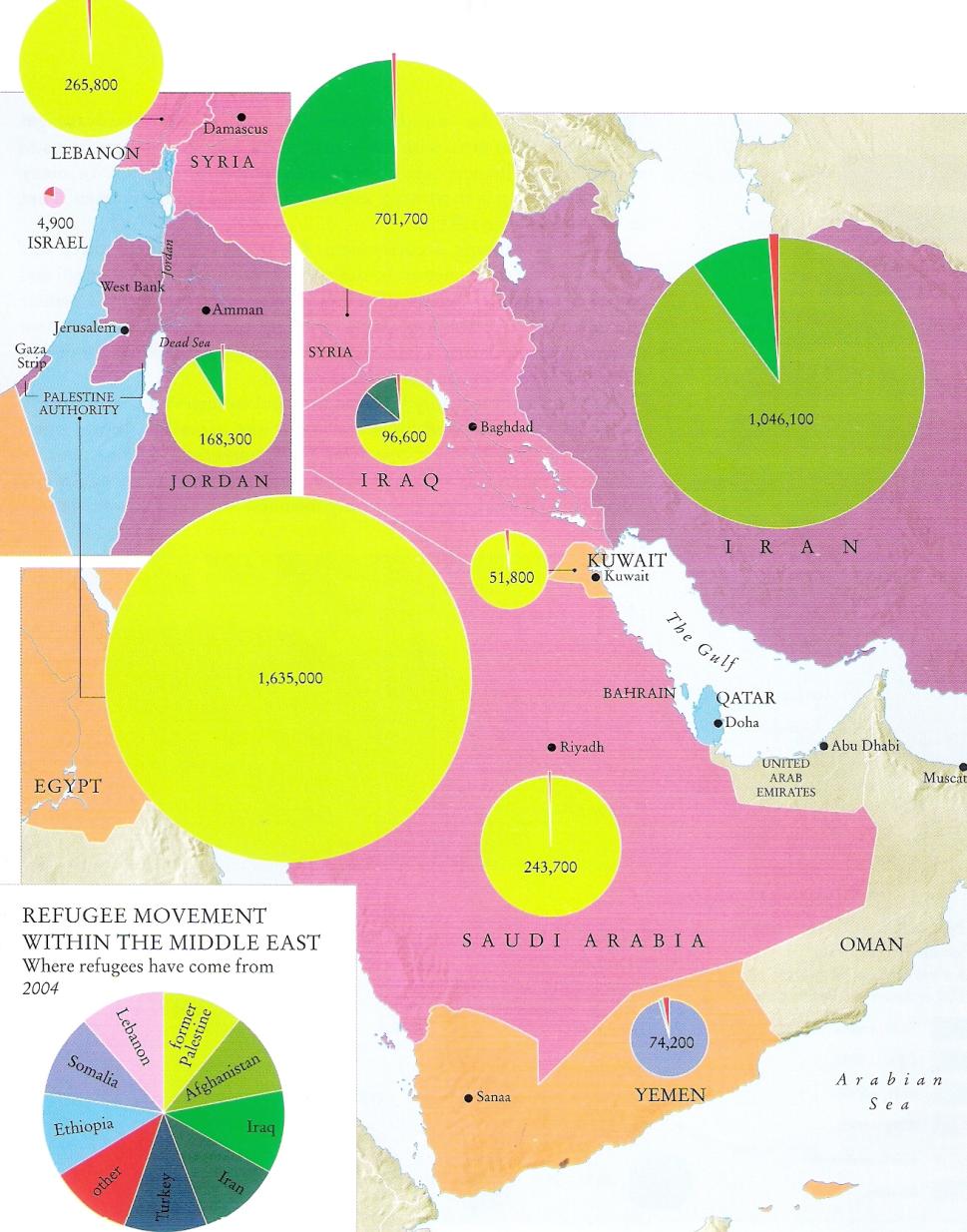
For updates
click homepage here

